 Taylor Barbee '27 Taylor Barbee '27
Taylor Barbee '27 Taylor Barbee '27
Taylor Barbee '27
B.A. in Applied Psychology and Human Development

To incoming students entering the Lynch School, I encourage you to take classes in subjects you have had limited exposure to before. Exploring in this way may lead you to a new career path you had never imagined for yourself before. At the very least, they could provide you with new knowledge that you can carry with you to help you understand the world in a more nuanced way.
What is your favorite thing about the Lynch School?
My favorite thing about the Lynch School is how welcoming and caring the community here is. Every single faculty member I have met has treated me with such kindness and respect, helping me to discover knowledge about both my areas of study and myself. My peers in the Lynch School are also such incredibly talented and caring people, and I am so grateful that the ERA program gave me the opportunity to build community and forge strong connections that have continued to grow as my time at BC has progressed.
What is the most impactful course you have taken and why?
The most impactful course I have taken at the Lynch School is The Education Conversation with Jeremy Alexander. This course prompted me to reflect more deeply on my education and my life as a whole, leading me to unpack the purpose and intention behind my decisions and goals. The knowledge I discovered through this course has stayed with me beyond the classroom and helped me to discover and cultivate who I am as an individual and to understand my place in the world.
 Jayden Castaño '27 Jayden Castaño '27
Jayden Castaño '27 Jayden Castaño '27
Jayden Castaño '27
B.A. in Secondary Education, B.A. in Hispanic Studies

I recommend taking advantage of Experience, Reflection, and Action (ERA)'s resources. The first-year course is a great way to build relationships with other students and connect with upperclassmen who have been in your shoes. These relationships are important as you make a major transition in your life. Additionally, ERA gives you the opportunity to reflect on the experiences you are having at Boston College, which I found to be helpful when starting college.
What is your favorite thing about the Lynch School?
My favorite part about being in the Lynch School is the incredible relationships that I have made and the close-knit community. Considering it is one of the smaller schools within Boston College, it is very likely to see familiar faces in your classes, and it is always comforting to have multiple people to lean on for support when starting a new course. These relationships extend beyond peers. The professors are very invested in your education, and they demonstrate that through the mentorship they offer. The Lynch School creates an environment for a student to thrive.
What is the most impactful course you have taken and why?
The most impactful course I have taken was The Educational Conversation with Associate Professor Christopher Higgins. This class highlights the disparities within our education system. It allowed us to reflect on what we can do as educators to resolve the systemic issues in our educational system. This class was completely discussion-based, and I found this aspect to be integral in creating an engaging environment. It is a class I highly recommend to all students who are passionate about education.
 Mia Cresti '26 Mia Cresti '26
Mia Cresti '26 Mia Cresti '26
Mia Cresti '26
B.A. in Transformative Educational Studies, B.A. in Environmental Studies

A piece of advice I would offer to incoming students is to be yourself and ask the hard questions. Transformative Education courses have an essential philosophical component to them which encourages you to pursue inquiries at the root of educational reform. By bringing yourself and your questions to class, you not only support your own learning, but also help create a classroom atmosphere which benefits all participants.
How did you discover the Lynch School?
During spring of my freshman year, I took Reimagining School and Society with Associate Professor Chris Higgins to fulfill half of my Social Science core. I ended the semester with a plan to transfer into the Lynch School from Morrissey College of Arts and Sciences. My interest in transformative education was piqued then, and has grown immensely since.
What is the most impactful course(s) you have taken and why?
The most impactful course I've taken is Professor Scott Seider's Transformative Teaching and Learning. It allowed me to engage both my creative and analytical sides through thinking critically about how I would choose to construct my own school. I also really appreciated Professor Seider's teaching style and his commitment to student feedback, especially in terms of grading and evaluation.
 Keiana Ferguson '27 Keiana Ferguson '27
Keiana Ferguson '27 Keiana Ferguson '27
Keiana Ferguson '27
B.A. in Elementary Education, B.A. in Applied Psychology and Human Development

The classes at the Lynch School are very engaging and interesting, and taught by amazing professors.
What is your favorite thing about the Lynch School?
I like that the Lynch School is small and that it is a community. Coming from a small high school where everyone knew each other to BC was a huge wake up call for me, and was quite nerve wracking. I think that most of the undergraduate students in the Lynch School have similar interests and are able to connect with one another naturally. This makes the Lynch School a safe space and a space to make lots of friends.
What piece of career advice would you offer to current students?
Keep applying and network! In the beginning of the school year, I knew I needed a job and I was getting was denied from each position. After introducing myself to someone who was open to helping me find a position, I learned there were no positions available at the time. It was difficult to not give up. But eventually, a spot opened on a team at the Cadigan Alumni Center and everything ended up working out for me. Sometimes, things like this cause us stress, but it is important to give yourself grace and push through with patience.
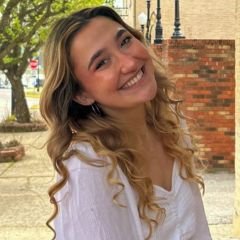 Josephine Fields '26 Josephine Fields '26
Josephine Fields '26 Josephine Fields '26
Josephine Fields '26
B.A. in Elementary Education, B.A. in Transformative Educational Studies
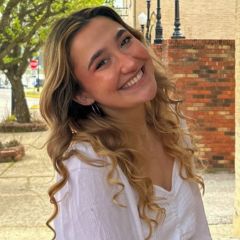
My favorite thing about the Lynch School is the supportive and empowering environment. Every faculty and staff member, from the OUP, the practicum office, professors, and even the librarians at the ERC, will go the extra mile to help you. At the Lynch School, I know have a constant team of cheerleaders rooting me on as I continue through my journey in and beyond Boston College.
How did you discover the Lynch School?
I discovered the Lynch School through the QuestBridge Program. I chose to attend the Lynch School because of its commitment to social justice and formative education. As a future teacher, I wanted to think beyond the current landscape in K-12 public schools and reimagine how educators can best meet the needs of all students. The Transformative Educational Studies major, which is unique to Boston College, challenges me to think more holistically and globally about my approaches to teaching. The Elementary Education major allows me to apply these ideas in my practicum experiences while emphasizing a strong ethic of care.
What piece of advice would you offer to incoming students in your program?
Students should utilize office hours to build relationships with their professors and learn more about their professors' research. My Lynch School professors are some of the kindest, most genuine people I have ever met and they truly want the best for their students, which is why they want to invite students to connect beyond class. Not only are office hours are such a valuable opportunity to continue class discussions and ask clarifying questions, but you can also get career advice and learn more about the impact your professors are making in their respective fields.
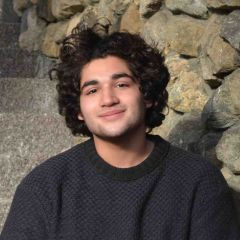 Joel Iglesias Lopez '27 Joel Iglesias Lopez '27
Joel Iglesias Lopez '27 Joel Iglesias Lopez '27
Joel Iglesias Lopez '27
B.A. in Transformative Educational Studies, B.A. in History
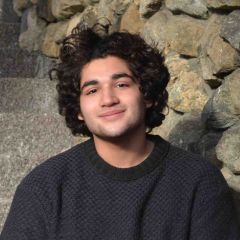
Seek out professors, advisors, mentors, and friends. People want to get to know you—friends and mentors are everywhere, so don't be afraid to take the first step!
How did you discover the Lynch School?
I discovered the Lynch School during the college application process, and immediately fell in love. Two things stood out to me about Lynch. The first is the community that is always present—the kindness, pride, and attitude Lynch students have radiates throughout posts, and at BC it's ever-present. Secondly, the Lynch School's professors and staff are outstanding. From the thoughtful academic advising and services to top-of-their-field professors leading innovative and groundbreaking research, while also teaching exciting classes; I knew Lynch was where I had to be.
What is the most impactful course(s) you have taken and why?
Thus far, two courses have had a great impact on who I am becoming. The first would have to be ERA, which has helped cultivate my interests across disciplines, while always keeping in mind the greater good. ERA also helped me form meaningful friendships and connections between other like-minded and passionate people. Secondly, the first class I took for my transformative education major, FORM1050: The Education Conversation, with Jeremy Alexander, truly reinforced my interests in educational philosophy. It inspired me to rethink and to critically view my education, and the educational experiences that have and will continue to contextualize my life.
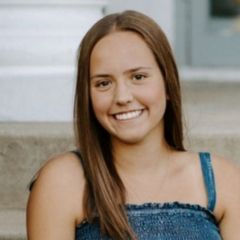 Sophia Mikula '26 Sophia Mikula '26
Sophia Mikula '26 Sophia Mikula '26
Sophia Mikula '26
B.A. in Applied Psychology and Human Development, B.A. in Elementary Education
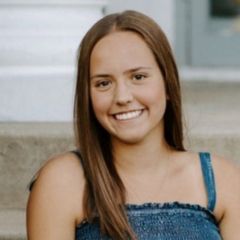
A piece of advice I would offer to an incoming student is to ask questions and connect with the faculty. Creating these connections can ultimately create more support underneath you as you continue through your years at Boston College. Whenever you need help and are unsure of something, ask these people questions. The more you ask questions, the more connections you will make, and the more comfortable you will feel!
What is your favorite thing about the Lynch School?
My favorite thing about the Lynch School is the close-knit community. Once you meet a fellow student or faculty member, they almost always remember who you are and what makes you, you! I never feel like I am just a number in a classroom, or a stranger to the fellow students in the hallway of the building. I know my professors well, and have been given more opportunities because of them. The strong connections and community I have built in the Lynch School will ultimately last a lifetime.
What is the most impactful course you have taken and why?
The most impactful course I have taken is Experience, Reflection and Action. This is the year-long freshmen course that students have to take in the Lynch School. This course allowed me to build connections with my fellow classmates and teachers and to grow. It ultimately taught me about how to navigate my next four years at Boston College, build connections, and learn all the fascinating ideas and concepts in the world of higher education. We listened to many guest speakers, learned how to do research, and built connections with students of all ages. Overall, this course helped me adapt to Boston College, and allowed me to create lasting relationships I still have today. I would not be as involved and passionate about my current studies and activities if not for the ERA program.
 Tushar Nazmul '26 Tushar Nazmul '26
Tushar Nazmul '26 Tushar Nazmul '26
Tushar Nazmul '26
B.A. in Applied Psychology and Human Development, B.A. in Biology (Pre-Med track)

Never stop being curious. As long as you keep trying new things and exploring, you will find your way to the career that makes you most happy.
What piece of advice would you offer to incoming students in your program?
Have a good balance. College, especially for freshmen, can be overwhelming, but do not forget to take a break and ask for help. There are resources at BC catering to first year students. Make sure to use them. There is no shame in asking for the support that you need and deserve.
What is the most impactful course you have taken and why?
Experience, Reflection and Action, or more commonly known as ERA, is an amazing first-year program. Your first year of college is a challenging time, but ERA makes the whole process much better. ERA provides skills like APA style formatting, public speaking, teamwork and so much more. In addition, ERA also facilitates lifelong friendships and real community. Lastly, first-year students get to connect with upperclass undergraduates (peer mentors), section facilitators (graduate students) and Dean DeVoy herself! Dean DeVoy comes weekly and offers guidance, support, and her words of wisdom.
 Andrea Rhee '25 Andrea Rhee '25
Andrea Rhee '25 Andrea Rhee '25
Andrea Rhee '25
B.A. in Applied Psychology and Human Development, B.A. in Global Public Health

As a student in the Lynch School, I have joined a community of students, professors, and mentors that encourage and invigorate discussions on matters that may be considered too difficult to some. I feel supported and seen in all of my classes in the Lynch School, a feeling that has been fundamental to my growth as a student and a person for others.
What piece of advice would you offer to incoming students in your program?
Don’t be afraid to explore! Coming into college, I was always used to being on a straightforward path towards some end, a mindset that continued into my first months at BC. But it was when I decided to let myself take classes simply because they sounded interesting, or attend “random” events on campus that I was able to find my spark in my career and academic journey.
What is the most impactful course you have taken and why?
Design for Impact, an intercollegiate design thinking class where students are challenged to create a solution for a global design competition, was by far one of the most impactful classes I have had the opportunity to take so far. The prospect of being able to dedicate an entire semester to designing a real-world solution with the support of professors from several universities was new and exciting. Also, working in a team - ideating, prototyping, failing, and trying again - was insightful in so many ways.
 Emily Wollan '26 Emily Wollan '26
Emily Wollan '26 Emily Wollan '26
Emily Wollan '26
B.A. in Secondary Education, B.A. English | Special Education Concentration, TELL/ESL Certificate

I chose the Lynch School of Education & Human Development because of it's strong emphasis on the Jesuit ideals of "cura personalis" or "care for the whole person." Everyone I spoke to about the Lynch School shared that they are always reminded that they are valued as a student, person, and friend rather than just being seen as a student. Hearing how strong the community was at the Lynch School was a big draw for me because I knew I wanted school to be a home for me, and I am so grateful to have found a home in the Lynch School!
What is your favorite thing about the Lynch School?
My favorite thing about the Lynch School is how collaborative and justice-oriented it is. Being in a smaller class setting with people who are passionate about making a difference in the world through a human-centric view is unbelievably special. We are presented with curriculum focused on justice and how to create a better world, values that help create globally-minded and justice-oriented graduates. My experience has provided me with professors and fellow classmates who are invested not only in the learning of the mind, but also the learning of the heart and soul. I am constantly amazed by the ever-present joy, and the ways it fuels Lynch School students to work hard to make a difference in their classes and the world.
What piece of advice would you offer to incoming students in your program?
I encourage all incoming Secondary Education majors to think deeply about the impact that they want to make on their future students and use the experiences and advice of professors and upperclassmen to find this vision. Being able to start your pre-practicum sophomore year is an incredibly unique part of LSEHD, and it's special to see your learning in the classroom translate into a school setting right before your eyes. More importantly, the Lynch School is full of incredibly knowledgable and caring faculty whose expertise is amazing to learn from.